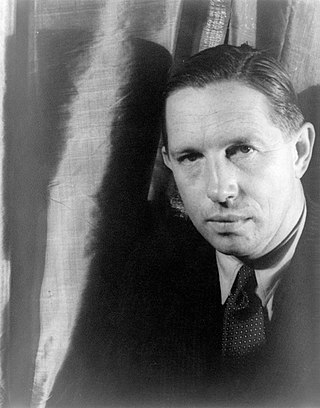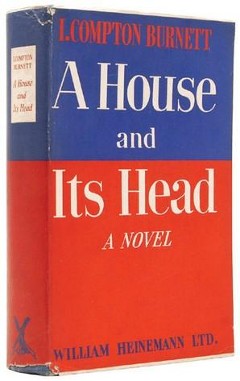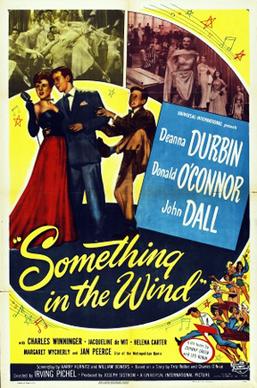Synopsis
The novel is set in the fictional Massachusetts town of Durham shortly after World War I. The Pentland family is rich and part of the upper class, but their world is rapidly changing. The old Congregational church the Pentlands long favored has disbanded as more and more WASPs have left Durham, replaced by immigrant Roman Catholics with different religious customs. The Pentlands once ruled upper-class society in Durham. However, upper-class society is changing: Many of the "old line" families have either died off or moved away, and many nouveaux riches have moved into the area who do not share the same old-fashioned values and observe the same old-fashioned norms of behavior that the Pentlands do.
The patriarch of the family is John Pentland. He lives in Pentland Manor, a large and old-fashioned manor house, with his sister Cassie, a fussy, moralistic, snobbish old maid who is firmly determined to see that the Pentlands uphold the "old ways." Her companion is Miss Peavey, who lacks intelligence but in all other ways is as moralistic and disapproving as Aunt Cassie. John's son and heir Anson married the wealthy but low-status Scotch-Irish girl Olivia. The couple have a son, John (nicknamed "Jack"), and a daughter, Sybil. The Pentlands say that they can trace their family heritage to the founding of the Massachusetts Bay Colony, and Anson is writing a book about the family. John Pentland's niece Sabine is the black sheep of the family. Her parents died, and her home was lost to creditors. She became Aunt Cassie's ward. However, 20 years ago, she married a poor, low-born man named Callender and fled with him to Europe. John Pentland acts as if he is widowed, but about a quarter of the way through the novel the reader realizes that his wife is not dead. For the past two or three decades, Pentland's wife Agnes has been insane, and she now lives in an upstairs room in a far wing of the house. She is cared for by Miss Egan, a nurse. Every morning, John Pentland visits her and speaks with her despite her insanity. Afterward, he visits Mrs. Soames, a long-time friend of his wife, and plays cards. His attention to the widowed Mrs. Soames is unseemly (so Aunt Cassie says), but no one can criticize him openly because John is the patriarch of the family.
The novel is set during the early autumn. Olivia is almost age 40, and she increasingly feels trapped and stifled by her life. She and her husband have a loveless marriage (they have not shared rooms for years), and their son Jack is constantly ill. The novel opens as Olivia's daughter Sybil returns home from a boarding school in Paris. Sabine Callender and her daughter Therese have returned to Durham, and they are spending the summer at Pentland Manor. Therese is a débutante, and she is being "introduced" to Durham upper-class society. Aunt Cassie and Miss Peavey repeatedly criticize Sabine for being a flapper and for the scandal she brought on the family. Also visiting Durham that fall is Jean, the son of a Frenchman who married an American woman and whom Sybil met in Paris. Sybil is in love with Jean, and she creates scandal by pursuing him relentlessly.
Also newly arrived in Durham is Michael O'Hara, an Irish immigrant who has achieved wealth and political prominence in Boston. He bought Sabine's former home, and he is refurbishing it. Aunt Cassie and Miss Peavey are horrified by the arriviste and constantly snub him. Anson is upset by the attentions O'Hara lavishes on his wife and daughter. O'Hara soon tells Sabine that he has fallen in love with Olivia, and Olivia reciprocates. O'Hara says he is willing to sacrifice everything just to love her. Anson Pentland refuses to give Olivia a divorce for fear it will ruin his career and the family's good name.
Several events happen in quick succession: Jack dies, but only Olivia is there to comfort him at the end. Olivia discovers the Pentland groom is having a secret affair with someone in the house. (The reader realizes it is Miss Egan.) The night Jack dies, Olivia runs into a momentarily lucid Mrs. Pentland, who tells her that there is a secret in the attic that could destroy and free the family. She is quickly hushed by Miss Egan, and she soon falls back into muddled incomprehensibility. Sybil marries Jean, and Olivia is convinced her daughter will find the happiness that she never had.
Several secrets are revealed by the end of the novel, which mark the Pentlands as hypocrites. Olivia learns that John Pentland loves Mrs. Soames (whether he has consummated his affair with her is unclear), and he has not divorced his insane wife out of duty. His daily visits with his wife are not performed out of love (as everyone assumes) but out of a desire to divert attention from his affair with Mrs. Soames. Olivia comes to believe that Mrs. Pentland's ravings about a secret in the attic were not madness. She soon discovers a packet of letters that reveals that the Pentland family's ancestor was a bastard child who stole the name from an aristocratic family that had died shortly after arriving in the New World. She suspects that Anson knows the truth and that he is lying about the family in his book.
John Pentland, broken-hearted at the death of his grandson, changes his will and leaves all his money to Olivia. He commits suicide by riding his horse into a deep ravine and falling to his death. Olivia rejects Michael O'Hara's love, realizing that she is the only person strong enough to hold the Pentland family together through the coming years of immense change. John Pentland has given her the chance, through her control of the family fortune, to force the Pentlands to adapt rather than wither like so many other upper-class families have. By leaving with Michael, Olivia believes that she would be taking the easy way out and cheapening herself.

Gone with the Wind is a novel by American writer Margaret Mitchell, first published in 1936. The story is set in Clayton County and Atlanta, both in Georgia, during the American Civil War and Reconstruction Era. It depicts the struggles of young Scarlett O'Hara, the spoiled daughter of a well-to-do plantation owner, who must use every means at her disposal to claw her way out of poverty following Sherman's destructive "March to the Sea." This historical novel features a coming-of-age story, with the title taken from the poem "Non Sum Qualis eram Bonae Sub Regno Cynarae", written by Ernest Dowson.

Emma is a novel written by English author Jane Austen. It is set in the fictional country village of Highbury and the surrounding estates of Hartfield, Randalls and Donwell Abbey, and involves the relationships among people from a small number of families. The novel was first published in December 1815, although the title page is dated 1816. As in her other novels, Austen explores the concerns and difficulties of genteel women living in Georgian–Regency England. Emma is a comedy of manners.

Dame Margaret Taylor Rutherford, was an English actress of stage, film and television.
The Forsyte Saga, first published under that title in 1922, is a series of three novels and two interludes published between 1906 and 1921 by the English author John Galsworthy, who won the 1932 Nobel Prize in Literature. They chronicle the vicissitudes of the leading members of a large upper-middle-class English family that is similar to Galsworthy's. Only a few generations removed from their farmer ancestors, its members are keenly aware of their status as "new money". The main character, the solicitor and connoisseur Soames Forsyte, sees himself as a "man of property" by virtue of his ability to accumulate material possessions, but that does not succeed in bringing him pleasure.

Athene Seyler, CBE was an English actress.

Jane Darwell was an American actress of stage, film, and television. With appearances in more than 100 major movies spanning half a century, Darwell is perhaps best remembered for her poignant portrayal of the matriarch and leader of the Joad family in the film adaptation of John Steinbeck's The Grapes of Wrath, for which she received the Academy Award for Best Supporting Actress. She has a star on the Hollywood Walk of Fame.

Louis Bromfield was an American writer and conservationist. A bestselling novelist in the 1920s, he reinvented himself as a farmer in the late 1930s and became one of the earliest proponents of sustainable and organic agriculture in the United States. He won the Pulitzer Prize for the Novel in 1927 for Early Autumn, founded the experimental Malabar Farm near Mansfield, Ohio, and played an important role in the early environmental movement.

A Pocket Full of Rye is a work of detective fiction by Agatha Christie and first published in the UK by the Collins Crime Club on 9 November 1953, and in the US by Dodd, Mead & Co. the following year. The UK edition retailed at ten shillings and sixpence (10/6) and the US edition at $2.75. The book features her detective Miss Marple.

The Coming of Bill is a novel by P. G. Wodehouse. It was published as Their Mutual Child in the United States on 5 August 1919 by Boni & Liveright, New York, and as The Coming of Bill in the United Kingdom on 1 July 1920 by Herbert Jenkins Ltd, London. The story first appeared in Munsey's Magazine (US) in May 1914 under the title The White Hope.

A House and Its Head is a 1935 novel by Ivy Compton-Burnett, republished in 2001 by New York Review Books with an afterword by Francine Prose and in 2021 by Pushkin Press with an introduction by Hilary Mantel. The novel, which focuses on an upper-middle class Victorian household in the 1880s, explores themes such as family secrets and the subordination of women by men. When asked in 1962 which of her novels were her favourites, Compton-Burnett referred to Manservant and Maidservant and "the first two-thirds" of A House and Its Head.

He Knew He Was Right is an 1869 novel written by Anthony Trollope which describes the failure of a marriage caused by the unreasonable jealousy of a husband exacerbated by the stubbornness of a willful wife. As is common with Trollope's works, there are also several substantial subplots. Trollope makes constant allusions to Shakespeare's Othello throughout the novel. Trollope considered this work to be a failure; he viewed the main character as unsympathetic, and the secondary characters and plots as much more lively and interesting, but it is one of his best-known novels. It was adapted for BBC One in 2004 by Andrew Davies.

Miss Austen Regrets is a 2007 biographical drama television film directed by Jeremy Lovering and written by Gwyneth Hughes. It stars Olivia Williams as Jane Austen, with Imogen Poots, Greta Scacchi, Hugh Bonneville, Adrian Edmondson and Jack Huston. It premiered on 21 August 2007 on BBC 1 in the United Kingdom and on 3 February 2008 in the United States by PBS' drama anthology television series Masterpiece as part of The Complete Jane Austen, the US version of The Jane Austen Season.

The Forsyte Saga is a British drama television serial that chronicles the lives of three generations of an upper-middle-class family from the 1870s to 1920s. It was based on the books of John Galsworthy's trilogy The Forsyte Saga, which were adapted by Granada Television for the ITV network in 2002 and 2003. Additional funding was provided by American PBS station WGBH, as the 1967 BBC version had been a success on PBS in the early 1970s.

A Modern Hero is a 1934 American pre-Code romance drama film starring Richard Barthelmess and directed by G. W. Pabst. It is based on the novel with the same title by Louis Bromfield. It was Pabst's only American talking film and the next-to-last film that Barthelmess made under contract to Warner Brothers.

The Forbidden Street is a 1949 British melodrama film directed by Jean Negulesco and starring Dana Andrews, Maureen O'Hara, Sybil Thorndike, Fay Compton and A. E. Matthews. Set in Victorian London, it tells the story of a wealthy young woman who marries a poor drunken artist and struggles to make ends meet; after his death, she takes in a lodger, with whom she falls in love. The film is based on the 1946 novel Britannia Mews by Margery Sharp.

Something in the Wind is a 1947 American musical comedy film directed by Irving Pichel and starring Deanna Durbin, Donald O'Connor, and John Dall.

Henrietta is an 18th-century novel by Scottish author Charlotte Lennox. The first edition was published in 1758, and the second edition, revised by Lennox was published in 1761.

Vanity Fair is a 2018 historical drama miniseries based on the 1848 novel of the same name by William Makepeace Thackeray. It was produced by Mammoth Screen and distributed by ITV and Amazon Studios.
Leave it to Psmith, subtitled "A comedy of youth, love and misadventure", is a 1930 comedy play by Ian Hay and P. G. Wodehouse, based on the latter's 1923 novel of the same title. It premiered in London's West End at the Shaftesbury Theatre on 29 September 1930.



















